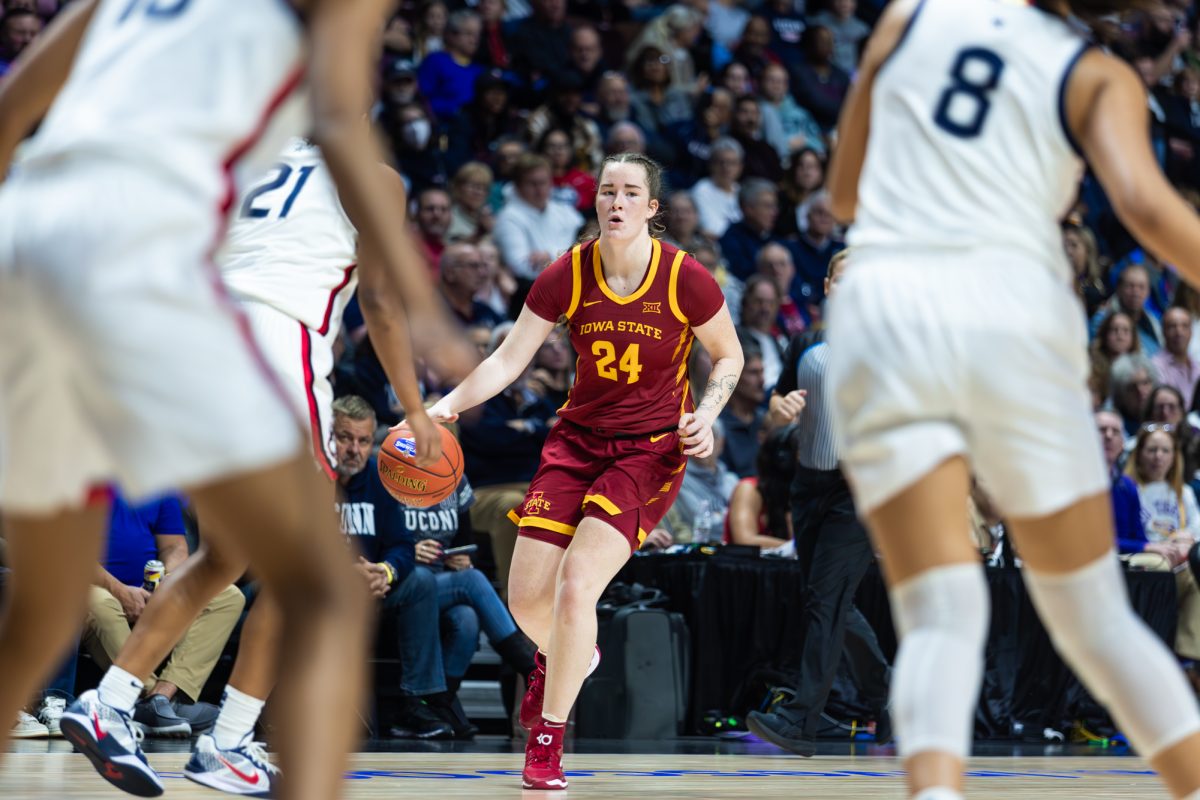Most college students don’t eat enough vegetables, experts say
February 28, 2001
Despite the health benefits vegetables offer, these miracle foods are sparse on college students’ plates, experts said.Becky Hammitt, dietitian at the ISU Student Wellness Center, said 80 percent of her clients do not eat enough vegetables, which help prevent cancer, heart disease and weight gain. However, it is not just college-age adults who aren’t getting their daily supply of veggies.In 1999, Iowa ranked 49th of 50 in fruit and vegetable consumption among adults 18 and older compared to other states, said Elisabeth Schafer, professor of food science and human nutrition. “We have since clawed our way up to 46th,” she said.States such as California and Florida, which have a year-round store of fresh vegetables, are also not the No. 1 vegetable consumers. The title is held by Minnesota, Schafer said.”If they can do it, why can’t we?” she said. There are a number of reasons which prevent people from enjoying vegetables, Hammitt said. Vegetables are costly and can spoil, she said, and the selection is not good during winter.Schafer said many people also think they take too much effort to cook and may not know how to prepare them.”I had one man in a study say, ‘If only I could buy them in a flip-top can,'” she said.Many students attempt to replace vegetables with vitamins, Schafer said, but vitamins do not provide all of the benefits of eating whole vegetables. Vegetables contain antioxidants such as vitamins E and C, which protect and repair cells, preventing cancer.Fiber regulates the digestive system, lowers cholesterol, and also prevents cancer. B-vitamins aid in metabolism, and beta-carotene improves eyesight. Folate is important in protecting against birth defects, Hammitt said.While these nutrients can be obtained through supplements, vegetables contain chemicals only obtained in plants, Schafer said.These phytochemicals have been shown to contribute to health in numerous ways, she said, by decreasing the risk of cancer and heart disease, improving vision and helping in almost every aspect of health.There are a few vegetables Schafer calls “superstars,” because of their high phytochemical content, including broccoli, spinach, carrots, cabbage, pumpkin, winter squash, green peppers and tomatoes.However, these vegetables are not always favorites among college students. Hammitt said college students prefer corn, potatoes and iceberg lettuce over other vegetables. Unfortunately, these vegetables do not contain as many phytochemicals and antioxidants, she said.Eating the recommended five fruits and vegetables each day may seem like a daunting task, but there are easy ways of adding these foods to diets, Hammitt said.Cleaning and pre-cutting vegetables to have on-hand, buying bagged lettuce and frozen vegetables and storing vegetables on a shelf instead of hidden in a refrigerator drawer are ways to make eating vegetables more convenient, she said. Adding vegetables to stir fry and dipping them in fat-free or light salad dressing may also increase eating enjoyment.ISU Dining Services typically offer five to 10 vegetables to students at lunch and dinner, said Mary Ellen Metzger, manager of Linden Hall Dining Center.”Vegetables are pretty prevalent in our menus,” she said. “There is always something to choose from.”While corn, green beans, peas, broccoli and cauliflower are popular, lima beans and brussels sprouts are often left untouched, she said.For the picky eater, Schafer recommends eating lots of the vegetables students do like.”If you like baby carrots, carry a bag with you to class,” she said.






